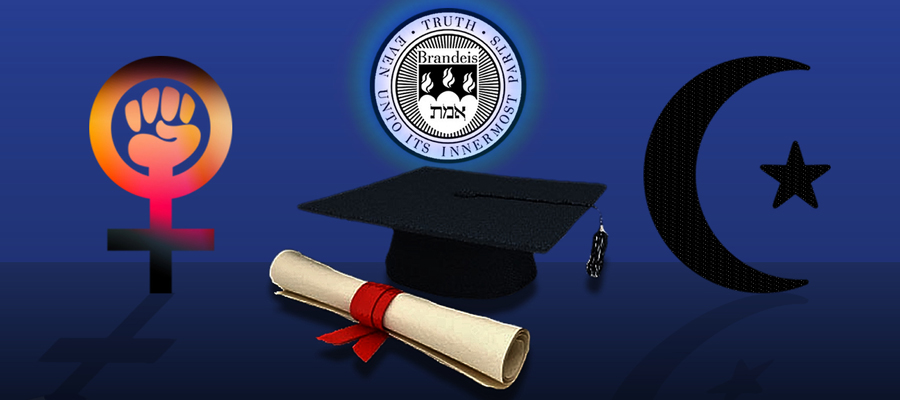Brandeis wrong to revoke Ayaan Hirsi Ali invitation
Brandeis University’s recent revocation of its honorary degree invitation to Ayaan Hirsi Ali, a Somali-born feminist and political essayist, has caused a firestorm of outrage. Though the university claims that its withdrawal of the invitation was due to Ali’s radically Islamophobic views, the truth shows otherwise. Brandeis should have stood by the invitation it extended to Ali, a very apt speaker and representative of the university’s motto: “Truth, even unto its innermost parts.”
An outspoken women’s rights activist and compelling public figure, Ali seemed a sensible choice for an honorary degree in the months leading up to her visit. After an incendiary letter from more than 85 faculty members and a Change.org petition that garnered more than 6,000 signatures, however, Brandeis revoked its offer on April 8, announcing that it could not ignore the extent to which Ali’s views conflict with the university’s core values, implying that they were previously unaware of Ali’s controversial views. That seems hard to believe, as a mere two-second Google search on Ali would have revealed her controversial background and past statements.
This entire affair is indicative of a cowardly internal collapse under pressure that betrays the core values of any university. By withdrawing the invitation so suddenly, Brandeis is not only breaking a promise, but also personally attacking Ali’s dignity.
“Yet the slur on my reputation is not the worst aspect of this episode,” Ali told Time. “More deplorable is that an institution set up on the basis of religious freedom should today so deeply betray its own founding principles.”
In the letter requesting the revocation of Ali’s invitation, the Brandeis faculty members cited Ali’s divisiveness. But her message isn’t about divisiveness at all. As Ali pointed out in the Algemeiner, “Neither Brandeis nor my critics knew or even inquired as to what I might say,” which only goes to support her claim that they just wanted her to be “silenced” and barred from sharing her views.
In fact, a transcript of the speech Ali planned to make reveals that she intended to discuss women’s rights — not her issues with Islam. Her critiques of Islam are not based solely on the religion itself, but the cultural traditions and mindsets that stem from the faith that have previously oppressed women like her. Ironically, as if foreshadowing the revocation, Ali included in her speech, “I’m used to being shouted down on campuses, so I am grateful for the opportunity to address you today.”
Though her critics have pointed to Ali’s past statements as evidence of Islamophobic hate speech — such as a 2007 interview with Reason magazine in which Ali said Islam “is a destructive nihilistic cult of death” — they fail to mention that she herself is a victim of practices that would be considered barbaric in this country. At age 5, Ali suffered from female genital mutilation. Later on, she was forced into an arranged marriage, from which she escaped after seeking asylum in the Netherlands. To label her as “Islamophobic” is merely a weak attempt to deflect the real issues at hand. Her focus is not on hate, but on change.
“We need to make our universities temples not of dogmatic orthodoxy, but of truly critical thinking, where all ideas are welcome and where civil debate is encouraged,” Ali wrote in the transcript of the speech she had prepared. “I do not expect all of you to agree with me, but I very much appreciate your willingness to listen.” That willingness is key, and until we bring it back, voices such as Ali’s that so urgently need to be heard will be sorely missed out on.
Valerie Yu is a sophomore majoring in biological sciences and English. “Point/Counterpoint” runs Fridays.



Very well said–and this article is making the rounds, having been picked up by other news outlets and blogs. Best piece I’ve read to date on this issue. Thank you.
Right on target. Thank you, Valerie.
Well said, Valerie Yu. Thank you.